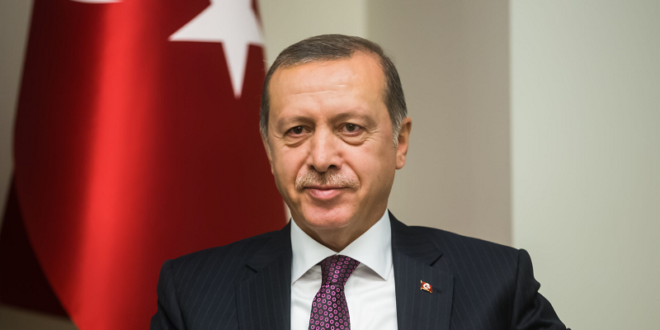In addition to think tank funding that often does not get disclosed, a new report provides a behind the scenes look at DC’s Turkish lobby.
“Issues of democracy, freedom of speech, and journalism but also the fight against terrorism, it’s not an easy thing to strike a balance between,” Turkish presidential spokesperson, İbrahim Kalın, said at a virtual event in December 2020. His comment came just days before the release of a report from the Committee to Protect Journalists which found that Turkey has been in the midst of a brutal crackdown on freedom of speech and that, besides China, Turkey had imprisoned more journalists than any other country in the world.
Kalın also downplayed the rising authoritarianism inside Turkey, as well as the country’s external military aggression in Syria, Iraq, Qatar, Somalia, Afghanistan, and elsewhere, adding, “It’s not in anybody’s interest to see Turkey and the EU having this kind of tensions [sic] or confrontation say over the issue of exploration activities in the eastern Mediterranean.” Meanwhile, it was being reported that these “exploration activities” were part of an aggressive military expansion, one that Turkey arguably hasn’t been conducting since the days of the Ottoman Empire.
Despite Turkey’s authoritarian and militant turn, Kalın was given this platform to white-wash Turkey’s reputation not at a rally for Turkish President Recep Erdogan or on Turkish TV, but by one of the most prominent think tanks in Washington — the German Marshall Fund of the United States — which had also publicly disclosed receiving hundreds-of-thousands of dollars from Turkish interests in the preceding three years.
GMF is certainly not the only think tank taking Turkey’s money. In fact, the government of Turkey and other Turkish organizations have donated millions to D.C. think tanks in recent years. These think tanks have, in turn, worked directly with the country’s registered foreign agents, all while hosting events and producing research that is decidedly skewed towards the interests of their funders.
Take for instance the Brookings Institution’s “Turkey Project” that is a collaboration with the Turkish Industry and Business Association, or TÜSİAD, which has shelled out at least $900,000 to Brookings from 2016-2021. TÜSİAD is Turkey’s pro-Westernization business organization (their counterpart is the Muslim MÜSİAD), which stands to benefit from efforts to downplay Ergodan’s rising authoritarianism, while promoting increased U.S. ties to Turkey. And, that is precisely what many Brookings reports offer, with policy recommendations that include reconsidering U.S. tariffs, maintaining Turkey’s membership in NATO (even with the contentious Turkish purchase of the Russian S-400 missile defense system), and finalizing the deal on Turkey’s EU membership prospects.
In addition to providing public platforms for Turkish officials and producing work favorable to Turkish donors, many of the think tanks that receive funding from Turkish sources also work with Turkey’s registered foreign agents. A new report from the Center for International Policy reveals that lobbyists working for Turkish clients made 83 contacts to U.S. think tanks in 2020, alone. For example, in 2020, staff at the Center for Strategic and International Studies had three meetings with Turkish government officials and received between $100,000-$499,999 in financial contributions from the government of Turkey in FY 2019 alone. CSIS doesn’t make its past donors available on its website, making it impossible to discern how much additional funding this prominent think tank has received from Turkey.
Additionally, some scholars at think tanks with funding from Turkey have failed to disclose that funding when testifying before Congress. When a senior fellow at the Center for American Progress testified before the House Foreign Affairs Subcommittee on assessing U.S. policy priorities in the Middle East, for example, he failed to mention CAP’s funding from Turkey, or from any other source. Instead, he and many other employees of think tanks, opt to exploit a loophole in congressional disclosure laws that allow witnesses to not report any of their organization’s funders so long as they claim they are testifying on their own behalf.
Given the enormous influence of think tanks on the policy process, it’s imperative think tanks be transparent about their funding and any potential conflicts of interest. Yet, in addition to failing to disclose funding from Turkey when testifying to Congress, think tanks often provide little, if any, information about their ties with Turkish interests in reports and events related to Turkey. While some do make this funding information available on their websites, like GMF and Brookings, it is often hard to find and not readily accessible to consumers of think tanks’ work. For example, a spokesperson for GMF noted the event described above mentioned being done in “partnership” with a Turkish organization, but at no point in the event is it noted that this “partnership” included years of sizable financial contributions from the Turkish organization to GMF.
This transparency-lite is troublesome as think tanks have been found to avoid addressing sensitive issues of their foreign funders, and, as The New York Times has found that some think tanks sell access and influence for financial gain, selling stories that promote the interests of donors.
Unsurprisingly, then, a 2018 poll found that only 20 percent of Americans “trust what think tanks have to say.” Given this lack of trust and the potential think tanks to provide valuable insights into the policy process, they should undertake steps to bolster the credibility and objectivity of their findings. As a Quincy Institute report, “Restoring Trust in the Think Tank Sector,” explains, this should include publishing comprehensive past and present financial disclosures, providing transparency statements on foreign funding, and proactively avoiding conflict of interests.
Failure to take these simple steps will only further diminish think tanks’ credibility in the eyes of the public. If think tanks want to talk about Turkey — or any country — they must simultaneously speak the language of transparency.
 Eurasia Press & News
Eurasia Press & News




